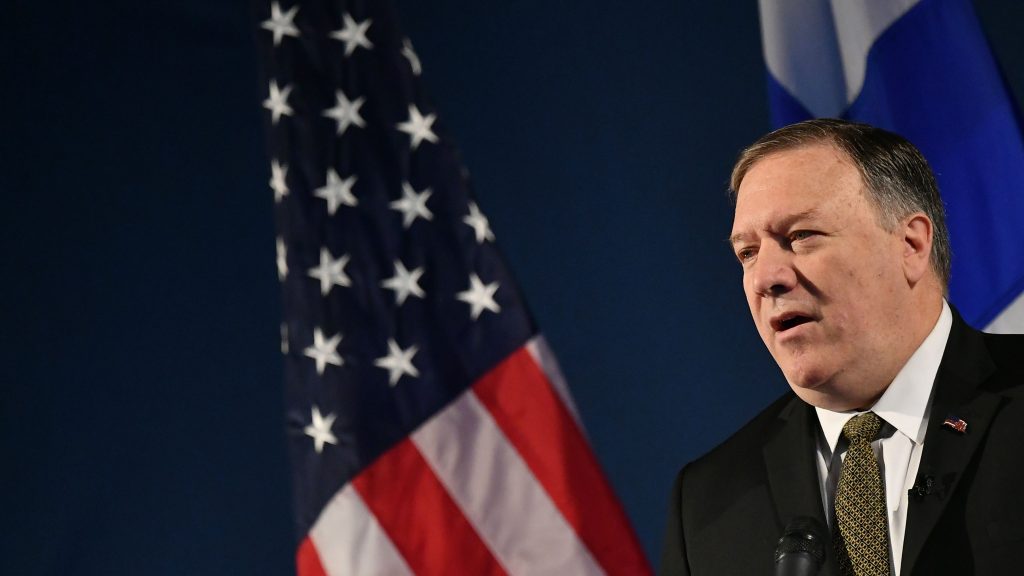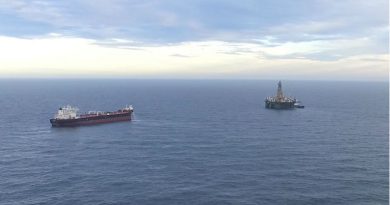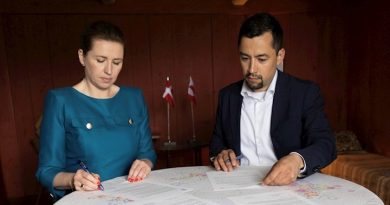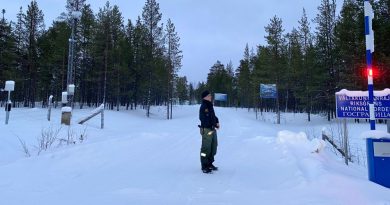Blog – Whose Arctic security is it anyway?

The question of security in the Arctic has become more pronounced in the region of late.
This is thought to be a result of the shredded relationship between the West and Russia, which is showing more frequent signs of spilling over into the far north, as well as the question of access to various regional resources which has caught the attention of Arctic and non-Arctic actors alike. Whether this situation which has often been linked to the concept of regional ‘exceptionalism’ [pdf], can be described as a ‘return’ of security in Arctic, or possibly the evolution of Arctic security concerns into different forms, it is clear this debate is now starting to show more overt signs of bifurcation. Yet, what does this ‘two-track’ approach to security in the Arctic actually consist of?
Great power, and state-level, concerns and policies are becoming ever more evident in the discussions about Arctic security, potentially at the cost of attention to other areas of regional strategic importance, including combating climate change, and addressing human security threats such as poverty and underdevelopment. These two often-competing narratives have begun to shape the definition of security in the region, the effects of which may influence many facets of future policymaking in the circumpolar north.
Earlier this month, a report by the research group Friends of Europe published a report [pdf], supported by the European Commission and the Europe for Citizens Programme of the European Union, outlined concerns that the changing focus on military and hard security issues in the Arctic was distracting from the pressing issues of local environmental changes. The emerging accounts of the militarization of the Arctic and a return to some sort of neo-Cold War milieu were described in the document as being over-hyped, prompted by the cooler relations between the US and NATO on one side and Russia on the other, as well as the growing presence of a major newcomer to regional affairs, namely China.
Shadow of ongoing climate change
The European report also pointed to the developing global interest into tapping into the region’s now-accessible resources, including fossil fuels and raw materials, as well as ‘toothless but functional bodies’, such as the Arctic Council, which do not address strategic or military concerns directly, as other factors in the changing shape of regional security. Some important near-Arctic organisations were also cited as being ill prepared for the changing strategic conditions in the high north, with the European Union described as suffering from gaps in its Arctic engagement policies, including in the strategic realm, and NATO, viewed as having ‘struggled to develop a strategy’ to best address Arctic security concerns.
All of these events are described in the paper as occurring in the shadow of ongoing climate change in the Arctic and the effects on local populations, including Indigenous groups. The specific cases of Sámi populations in the Nordic-Arctic, and the effects of altered weather and ice conditions on traditional reindeer herding, were cited as one example in the document.

Amongst the recommendations in the report were to intensify efforts to develop various communication channels on both governmental and sub-governmental levels to address military and other security differences. The EU and NATO were called upon to better clarify their regional interests, while the United States was singled out as requiring a rebalancing of its Arctic diplomacy to include climate change security, (unlikely in the short term, given the firm stance of the current government in Washington that climate change is a fiction). As well, rather than pursuing a policy of barring China from various regional deliberations, there was the argument that attempts should be made by Arctic governments to include Beijing in various security dialogues.
Another example of the push-and-pull between state-centric and individual-level approaches to Arctic security could be seen at the annual Russia Conference this month, held online by the Norwegian Institute of International Affairs (NUPI) in Oslo. Despite its title, this year’s event focused extensively on American and Chinese Arctic policies in addition to those of Russia, and a majority of the focus was on central government policies and state-to-state interactions as opposed to local concerns, including within the Russian Arctic itself, and human security.
U.S. wildcard
The presentation [video] by one of the keynote speakers at the webinar, recently-appointed US Coordinator for the Arctic Region James DeHart, illustrated not only the state-focused approach to regional affairs which has been adapted by Washington in the past two years, but also the growing disconnect between the United States and its fellow Arctic governments. Mr DeHart detailed the developing ‘balanced approach’ to US regional engagement, including in the area of security, as well as stressing the need for deeper cooperation between the United States and the Arctic Council. Yet, this speech skirted the subject of anthropogenic (human-made) climate change in the Arctic, (described obliquely in his speech as ‘dramatic physical changes’).

It was American unwillingness to address (or acknowledge) regional climate change which drove a wedge between the US and the rest of the Arctic Council at the 2019 Senior Arctic Officials meeting in Rovaniemi, Finland, and continues to be a sore point in regional diplomacy. The ongoing detachment of the American government on the subject of climate change has been especially glaring this summer, given the intense storms which have hit the American South as well as the ongoing wildfires in the US West Coast which have been attributed to altered climate conditions.
Other ‘America First’-esque Arctic policies, including Washington’s singling out of Russia and China as challengers to regional security, at the expense of climate change threats, have also complicated multilateral cooperation. This situation is unlikely to improve when the chair of the Arctic Council is passed from Iceland to Russia in May of next year.
One other such example raised in Mr DeHart’s presentation was his answer to a question about the revival by Washington of the legal tussle between Canada and the US over the status of the Northwest Passage which Ottawa views as internal waters, a policy which US Secretary of State Mike Pompeo denigrated as ‘illegitimate’ at the Rovaniemi meeting. Despite the outcome of this disagreement potentially having profound implications for Canadian Arctic sovereignty, the issue was downplayed by Mr DeHart in his NUPI presentation as ‘disagreements over some technical aspects,’ including ‘aspects of navigation’ of the Northwest Passage.
Active or reactive?
Elsewhere in the Arctic, this month also saw signs of further military activities in and around the Nordic region. This included the controversial inclusion of a Norwegian Navy frigate, namely the KNM Thor Heyerdahl [in Norwegian] in a British-American-led operation in the Barents Sea, within Russia’s exclusive economic zone, the first such mission undertaken without the cooperation of the Russian Navy. (Norway had declined to join American and British vessels in a similar operation in May of this year). This sailing was described by the UK government as a ‘freedom of navigation’ exercise designed as a response to ‘the risk of states looking to militarise and monopolise international borders’.
Norway’s position as a frontline state in Arctic military developments was also illustrated recently by the unusual surfacing of an American Navy submarine, USS Seawolf, just outside of Tromsø, and the subsequent arrival [in Norwegian] of three German Naval vessels, in that city’s port. There has been the suggestion American and British military vessels may become a more common sight around Tromsø, but the city’s government recently declined a request to host US nuclear submarines at the municipal port.
These events will likely add fuel to discussions about militarization of the Arctic, including the reason behind these developments and whether these moves can be considered active or reactive, (or defensive versus offensive), in nature. The problem, however, is whether this talk will result in more obscurity around many other pressing areas of Arctic security, especially those on the individual level and related to so-called ‘non-traditional’ security concerns such as development, education, the environment, gender, and health, (including the effects of COVID-19), which are also affecting the region in the here and now.
Related stories around the North:
Arctic: Are potential Arctic security threats eclipsing urgent action on climate? A new study makes its case, Eye on the Arctic
Canada: Canada’s long-term neglect of Arctic must stop says Senate report, Eye on the Arctic
China: Qingdao plays pivotal role in China’s Arctic strategy, Blog by Mia Bennett
Denmark: COVID-19 could delay Kingdom of Denmark’s Arctic strategy, Eye on the Arctic
Finland: Finland and Russia discuss cooperation between Arctic and Barents structures, The Independent Barents Observer
Iceland: Nordics should aim for common approach to China’s Arctic involvement says report, Eye on the Arctic
Norway: Good Fences? Good Neighbours? The Diplomatic Travails of Norway and Russia, Blog by Marc Lanteigne
Russia: Russian navy conducts major manoeuvres near Alaska, The Associated Press
United States: U.S. appoints special coordinator for the Arctic to advise on national security, economic issues, Eye on the Arctic



